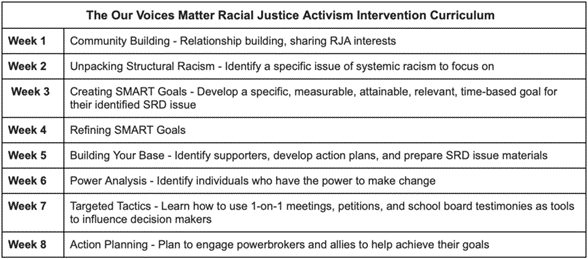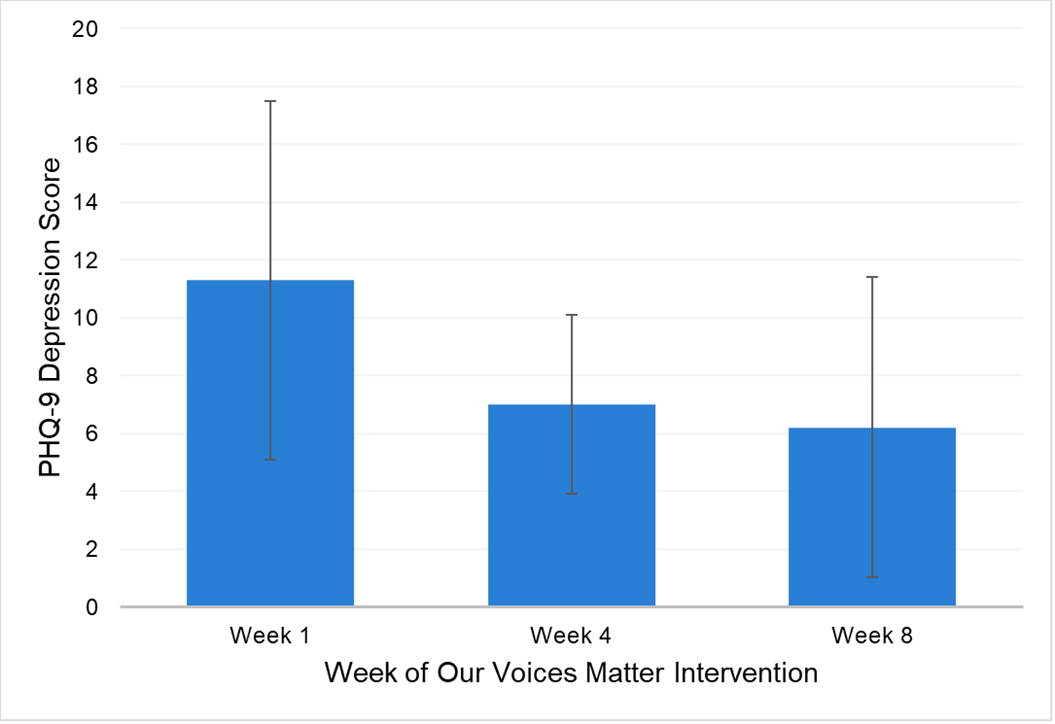Adolescent Medicine
Session: Adolescent Medicine 1
147 - Our Voices Matter Pilot Study: A Racial Justice Activism Intervention to Reduce Depression in Adolescents
Friday, May 3, 2024
5:15 PM - 7:15 PM ET
Poster Number: 147
Publication Number: 147.456
Publication Number: 147.456

Nia J. Heard-Garris, MD, MBA, MSc (she/they)
Assistant Professor of Pediatrics
Ann & Robert H. Lurie Children's Hospital of Chicago
CHICAGO, Illinois, United States
Presenting Author(s)
Background: Widespread protests following the murders of George Floyd and Breonna Taylor in 2020 spotlighted activism as a collective response to racism. Black and Latinx youth experience adverse mental health impacts due to racism and may engage in racial justice activism (RJA) in response. RJA is addressing racial injustice via political, collective, and interpersonal actions. Few studies test RJA’s potential as an adaptive coping strategy to improve the mental health of Black and Latinx adolescents, and the Our Voices Matter RJA pilot study addresses this gap.
Objective: To test the influence of the Our Voices Matter RJA pilot intervention on depressive symptoms in Black and Latinx adolescents.
Design/Methods: The Our Voices Matter RJA intervention was piloted in Spring 2023 with Black and Latinx adolescents (N=7) in Chicago, IL. The group participated in 8 weekly, 90-minute, virtual sessions on how to use activism as a tool to dismantle racism (Fig. 1). Participants focused on the school-to-prison pipeline and investigated it using primary sources. Then participants developed social media campaigns to promote awareness and action. They completed baseline, mid-point, and post-intervention measures of depression (Patient Health Questionnaire-9) and measures about acceptability and adherence.
Results: Using Wilcoxon non-parametric signed-rank test, we found a statistically significant decrease in depressive symptoms from week 1 (M = 11.3) to week 8 (M = 6.2; z = -2.21, p = .03, r = -0.64) (Fig. 2). Participants had a 38% reduction in depressive symptoms by week 4, and a 45% reduction by week 8. The five-point average reduction from week 1 to week 8 met the minimum clinically important difference, moving from moderate to mild depressive symptoms. On a Likert scale from 1 (strongly disagree) to 7 (strongly agree), participants reported that sessions were helpful (M = 5.83), and an appropriate length (M = 5.67). The attendance rate was 71%-100%, reasons for absence were school and civic engagement activities.
Conclusion(s): The Our Voices Matter RJA intervention yielded both a statistically significant and clinically meaningful reduction in depressive symptoms for Black and Latinx adolescents. The Our Voices Matter RJA intervention teaches activism as an adaptive coping strategy for Black and Latinx adolescents to resist racial injustice and change the sociopolitical conditions that threaten their wellbeing. Moving forward, RJA must be examined as a health-promotion strategy to address racism, potentially diminishing health disparities, and fostering an equitable world.


